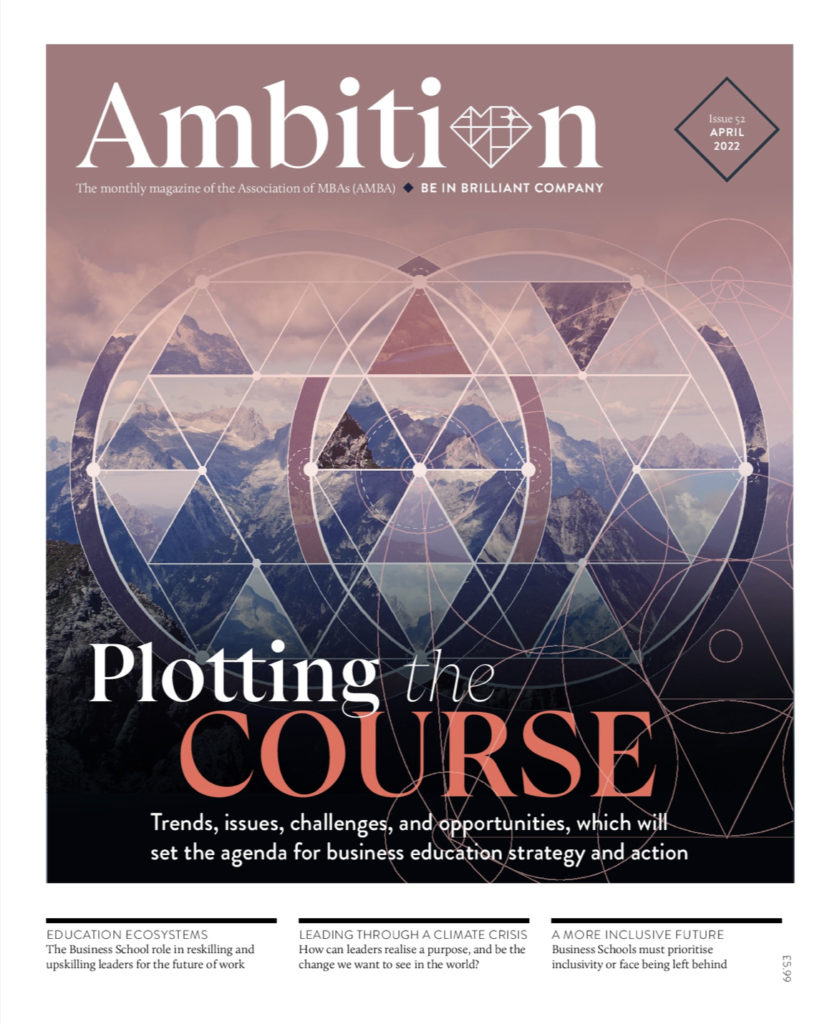Sustainability and CSR is an approach to the management of organisations which is focused on long-term economic, social and environmental value.
It is a response to the challenges of the modern world facing organisations from all sectors, and people from all walks of life.
A business can be a force for good if its purpose is not just about the bottom line, and it is willing to serve its community and satisfy societal needs sustainably. There is a growing consensus that business leaders have a responsibility not only to shareholders, but also to wider society: customers, employees, suppliers, communities, and the environment. But how does this affect business education? Understanding the impact of decisions and barriers to progress are steps in the right direction towards the development of sustainable and socially just economies.
Today’s leaders are in a privileged position, as technology and their global reach give them more power to create social and sustainable value than ever before. A movement for a green-based recovery that will deliver superior returns over traditional fiscal stimuli has gathered real momentum.
Embracing sustainability
During a panel discussion at the AMBA & BGA Business School Summit 2022, two leaders who are making real change in their technology-driven organisations discussed how they think organisations need to respond to the climate crisis.
Chairing the session, David Woods-Hale, Director of Marketing and Communications, AMBA & BGA, set the scene in his introduction: ‘If COP26 taught us anything, it’s that the solution to the climate emergency is not going to lie solely with politicians or individuals – a big part of it has to come from businesses. Those who are in business schools now, doing MBAs or postgraduate qualifications, are going to be the people coming into organisations and making the difference.’
He went on ask the panel what they thought would be the triggering point for all business to become more sustainable. Currently, despite the bleak news surrounding the climate emergency, many organisations are still slow to develop sustainable practices.
Rita Monteiro, Head of Net Zero Programmes at Amazon, tackled the question first: ‘I think sometimes we look at sustainability in very specific verticals, but we need to look at it more holistically,’ she said. ‘The public and private sector need to come together to accelerate the technologies that we need to decarbonise.
‘It’s not just about new leaders that are coming into business. Of course, the new generation has much more of an awareness around sustainability and social responsibility – which is great because it will become part of the DNA of ethical business behaviour. But there also needs to be the realisation in tenured leaders that sustainability is about innovation, and it is about survival.
‘Even if someone refutes the science (which I would be very surprised about) sustainability is about survival; you have to make the change to survive. Businesses are having to make that shift. I would be happy to see more policy, as it helps to bring everyone forward together at the same level. It’s not about independent action but consolidated work,’ Monteiro concluded.
Adam Hall, Head of Sustainability at Internet Fusion Group, added his own thoughts to this. ‘You also need to see that action from customers,’ he said. ‘They need to support responsible businesses to keep that momentum going. But I strongly feel that business should take the lead here.’
Wrapping up the session, Hall gave advice to organisations on how business should connect with climate change: ‘Sustainability has to be delivered across all departments,’ he argued. ‘It is not one department that delivers it for everyone. In most situations, it’s the co-ordination of multiple departments trying to make their elements more sustainable. We need to change the perception of sustainability, it’s a practical function of a modern business. Operational efficiencies come along with sustainability, as well as cost savings.
‘Sustainability needs to be delivered through practical and pragmatic efforts that are put across very simply, he continued. ‘I think one of the areas we are not great at is trying to make this realistic and achievable. We are guilty, as a sustainability community, of using terminology and explaining it in complex ways – it shouldn’t be, it must be recognisable in every single department. For us to really get some momentum going, sustainability has to be understandable, communicable and achievable.’








